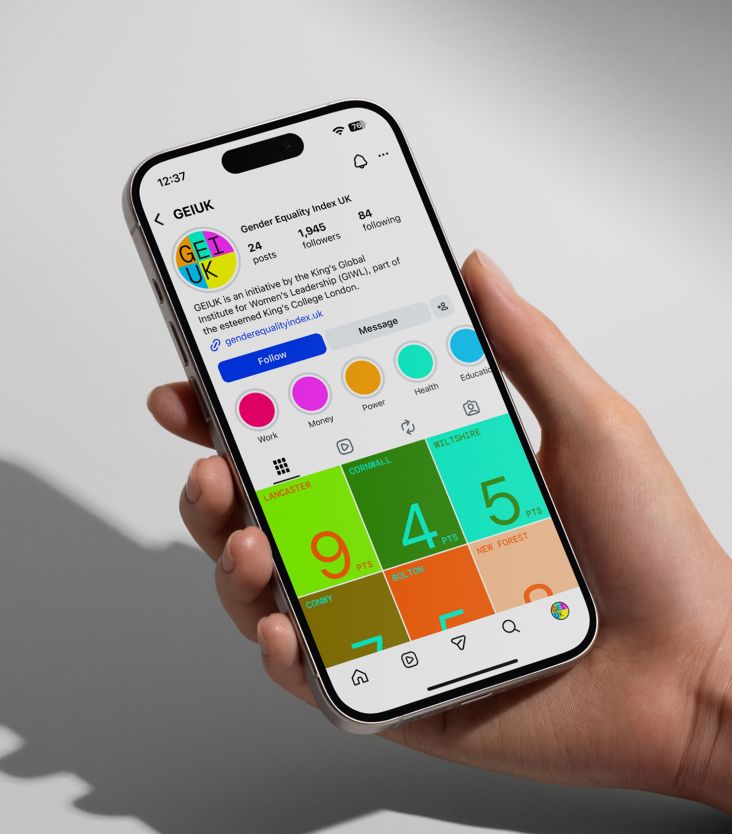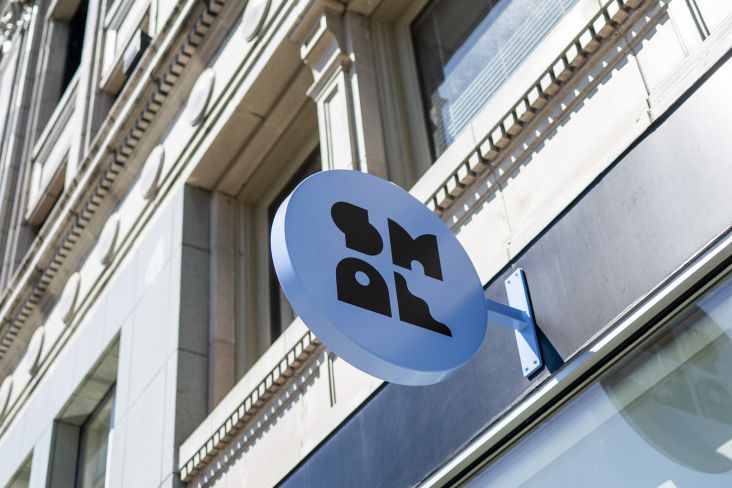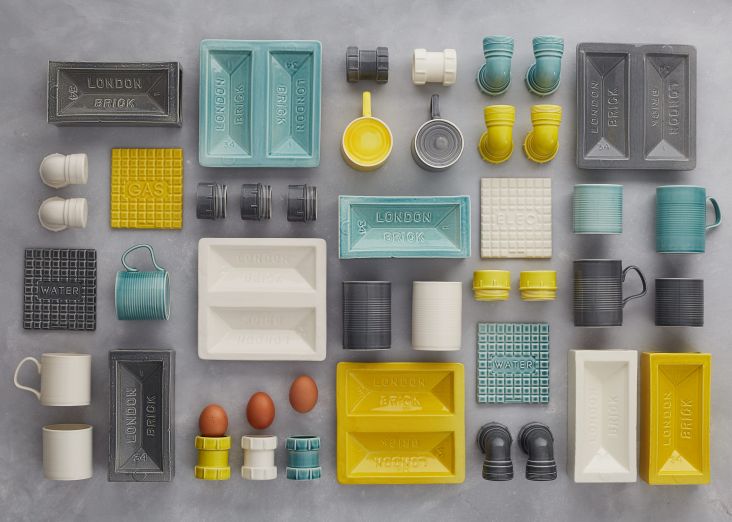10 years of working for myself: The surprising things no one tells you about freelancing
After deciding that working for someone else just wasn't my cup of tea, I started my own business in 2007. I was 27 years old and had spent the first six years of my career working as a broadcast journalist, before transitioning to PR and marketing.
](https://www.creativeboom.com/upload/articles/e7/e7cafab030d31c8263cf954f5cd38f1a3be6349d_1280.jpeg)
Image courtesy of Adobe Stock
Freelancing was never something I'd even considered until I met my husband. He was already working for himself and so encouraged me to do the same. I was lucky. He taught me how to get going. But really, it was quite straightforward. I chose a business name, sorted out some basic branding, opened a business bank account, set myself up on FreeAgent, registered as self-employed with HMRC and won my first clients.
Those initial clients came from my network – people I'd already worked with in previous jobs (it pays to keep in touch and be someone others enjoy working with). And I was dumbfounded that I was already earning more than my previous salary – all while working from home! It felt like I'd hit the jackpot. Until the global recession struck, that's when the reality of freelancing came crashing down on my naive shoulders. All my clients, except one, cut their marketing budgets, and I was suddenly out of pocket.
Funny enough, I applied for some jobs again – and won a position in the Midlands, working for a large PR agency. I lasted one day. I said to myself, "why the hell have you given up so quickly, and come back to what you hate?"
It was after this small blip that I realised work wasn't going to come so quickly. If I were going to be a successful freelancer, then I'd have to hustle. No one else was going to do it for me. I was on my own.
That was ten years ago; and now here I am, running a PR agency in Manchester with clients including BBC, Manchester City Football Club and Adobe, and I'm the founder of an online magazine that attracts half a million readers a month.
I could try and be humble, and say that I'm not quite sure how this all happened, but I know only too well the slog that's involved and the amount of commitment that's required to "make it". If you're wondering whether to leap, then allow me to share what no one ever tells you about freelancing. Hopefully, it will prepare you for what's to come.
1. Confidence is everything
If there is one thing that has helped me more than anything, it's confidence. Confidence will help you stand tall, hold your head up high and create the impression that you are credible, trustworthy and able to handle anything (which, of course, you are).
It's like being in a dangerous situation – you're always going to look to someone for strength and reassurance to survive. It's the same in business. Show any sign of weakness, and your client will feel like you're incapable of steering them to safety and doing a good job.
With this in mind, you'll want to project a calm and confident manner – especially when you meet clients for the first time. You don't want to waste that one opportunity to impress.
Are you feeling nervous? Slow down when you speak, deliberately make yourself sound calm and sit still, don't fidget – confident people are relaxed. Be comfortable in your skin, and know your worth. You've made it this far, and people are meeting you to find out more, so you must be doing something right!
2. The first two years will be painful, but it will get easier
Those first 24 months are going to be tough. I can't sugar-coat it for you. It's not easy starting a business and surviving those initial two years. It's why you might need to keep a part-time job or take on projects you'd rather not. It's why you might work 15 hour days, seven days a week (I certainly did).
It's also why you might be better off staying in your current home, with a cheaper mortgage. It's why holidays might need to be put on hold for a while. Having a healthy cash flow, both now and in future, is paramount to your success.
But if you can crawl out the other side with a respectable regular income; if you can see that you've got a decent amount of clients who are bringing repeat business and if you're even at the stage where you can get an office and hire help – these are all fantastic signs that you've made it, and can face the next phase of your business growth.
For me, the thing that has helped me the most is that I'm able to offer "retainer" support to my clients. It means they agree on a monthly budget that allows a certain amount of my time, and I get paid regularly. I know designers and illustrators tend to win projects instead of ongoing accounts. Still, I also know plenty who have offered a "retainer" option, and that has worked exceptionally well for them.
Whatever you do, have the confidence to know your worth. Keep testing the water and increasing your day rate with new clients, to see if they'll bite. You'd be surprised at how much you can charge if you know how to present yourself in a way that exudes confidence, quality and reliability.
3. Freelancing isn't just about selling your skills
You'll manage your taxes; you'll sort your marketing, you'll deal with the post. You'll answer the phone, tackle new business enquiries, handle time-wasters. If you grow your business and hire staff, you'll initially conduct the interviews, deal with salaries and strive to support them, as well as yourself.
When you freelance, you wear many hats – the receptionist, the accountant, the marketer, the employer – it never stops. Once you've put out one fire, another will burst into flames and need your attention.
For me, this is why I thrive off self-employment. I love being busy and enjoy the variety. One of the things I love most about running a business is how much I learn. Ten years of working for myself has pushed me to my limits, forced me to tackle things that many don't get the chance even to consider. In turn, this has boosted my people skills, communication skills and allowed me to grow both professionally and personally.
4. It can be very lonely
If you work from home, and work alone, you are on your own. Freelancing can be a lonely career path. Days can go by when you don't see or speak to another soul. But it's not just that: all the business decisions, everything that needs to be done – it's all down to you, and you alone.
I'm lucky that I run my business with my husband. We both support one another and pull each other through difficult times. But many of you won't even have that. My advice is to find a co-working hub and work from there occasionally, and dedicate one or two nights each month for networking events or talks. Get out, meet people, and you'll feel like you're part of a supportive community, rather than a hermit.
5. No one knows what they're doing
When I first started, I assumed everyone knew what they were doing. It's a common misunderstanding when you're young and still trying to understand how the world works. But believe me, it's true. Everyone is just doing their best, using what skills, expertise and resource they have. It's impossible to know everything.
With this in mind, you can't be expected to work miracles. You can only do your very best. Remind yourself of this whenever you're feeling insecure or having a bad day.
6. Be careful about who you trust
One of the hardest lessons I've learned is that you can't trust everyone. Mark my words, if you have something people want, they will stop at nothing to take it from you.
I've been lucky and avoided any major issues, but I've had a few scrapes – mainly because I assumed people were the same as me, i.e. wanted to do the right thing, tread lightly in the world and be kind. That's not the case. People can be devious.
Trust on merit, that's what I say. Give people a chance, but be wary. Learn to tune into your gut feelings, so you can spot the bad apples before it's too late.
7. The hard times will teach you more than you realise
God, I've made mistakes. A whole heap of them. If you could make my mistakes visible, they'd be piled high up to Mars, probably. But you know what, these mistakes have been nothing but valuable.
Yes, I sometimes blush at the thought of what I've said and done. We all do that. Kick ourselves and wish we'd handled things differently. But that's what makes us human. It's how we learn and progress. And stop messing up in future.
You will also make a sh*t load of mistakes. You'll have moments when you want the earth to swallow you up. But please don't be hard on yourself – it's completely normal. Just learn the lessons from these painful episodes and move on.
8. You'll fire some clients
I've been fortunate with clients over the past decade. Most have been courteous, great to work with and, I'm proud to say, I'm still supporting. But there has been the odd problem client when, after one too many "incidents", you realise the money isn't worth the hassle, and it's time to move on.
You'll have your own Don Draper moments, I'm sure. When you're in a meeting with a difficult client – you know, when they demand to know why you haven't achieved six months' worth of work in two weeks. And you take a moment to look out of the window, spot a distant plane in the sky, and boom! You suddenly realise that they need to go.
But if you do fire someone, do it graciously and do so without them thinking you ditched them. It could be a change in services, a different path – whatever kind and gentle excuse you opt to use, it will ensure you don't burn any bridges and remain a word-of-mouth recommendation, should that be the case.
9. Keeping existing clients happy is easier than winning new ones
If you've been wondering about whether to fire Client A or B, then stop and consider this one truth – it will be tough to find a replacement because keeping existing clients happy is far easier than finding new ones.
Besides, every client comes with their challenges – they might not pay on time; they might sometimes call out-of-hours; they might even be over-demanding and throw ridiculous deadlines your way. Whatever it is that's bugging you; you can bet any other client might pose the same problems.
My advice? Count your blessings with each client and remind yourself of their positive attributes. They can't be all bad. But if they are, take steps to try and rectify the situation. If that doesn't make any difference, read my previous point and, as a last resort, cut ties gracefully and professionally.
10. You'll never go back, as there's still so much to achieve
If you love entrepreneurship and make a success of it, you'll never return to full-time employment. I always thought I would, someday. And I still reassure myself that, "I can always get a job if things don't work out."
But here I am, a decade later after taking that initial leap and I'm still going strong. My PR firm, Boomerang, has gone through many twists and turns, and we're now specialising in communications for the creative industries – something that I'm incredibly passionate about, and aligns nicely with my magazine, Creative Boom. I've travelled the world, been to Number 10 Downing Street, and met people and brands I never imagined.
Things certainly didn't happen overnight. And yes, I'm quite proud of my survival. But I'm not done. And you won't be either. Like me, you might cringe at your last piece of work. That's great because it shows that you're improving.
For me, running a business is so much more than doing something you love for a living and getting paid well for it; it's about pushing yourself to your limits and facing challenges that you satisfyingly overcome. It's about seeing how far you can take things, and how much further you can go after you've achieved each goal.
If you love freelancing, you'll feel the same way. When you think you've reached your limits, you'll discover something new to focus on. Running a business can be the ultimate in job satisfaction. It suits a specific type of person, and it won't be for everyone.
But after ten years of going solo, I can confirm that it was the best thing I ever did. I'm keeping everything crossed that I can enjoy another decade, and perhaps even launch a few products and side projects along the way.














](https://www.creativeboom.com/upload/articles/af/afe03826eb65d6ab8b133c904905f16897badb3c_732.jpeg)
](https://www.creativeboom.com/upload/articles/e5/e5267b1b5a615bf6d6cf2bb9ca0181401a3cf496_732.jpeg)
](https://www.creativeboom.com/upload/articles/6f/6f1a2330ea0c42ecd0bd0f9a19be5f540a0aa96e_732.jpeg)





